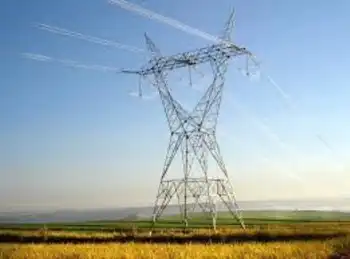Libya moves ahead on nuclear projects
The deals pertain to the use of nuclear energy for peaceful purposes.
Toward this purpose, Libya has proposed to pass a law outlining the peaceful intentions of the nuclear ventures, thereby laying the foundation for a legal regulatory framework for nuclear projects in the country. A special commission has been formed to pass the legislation, while another task force has been created to identify suitable sites for nuclear ventures and initiate the required preliminary studies.
According to the announcement from the Nuclear Energy Institute of Libya, nuclear energy will be primarily used for power generation and desalination plants in the country. Later this month, the Libyan Nuclear Energy Board will enter into another round of talks with Areva S.A. to set up nuclear reactors for power generation, building on the progress of the previous round in November 2009. Also, the existing bilateral cooperation agreement with the Atomic Energy Commission of France and Areva has been revised and activated.
Libya already had finalized nuclear deals with Russia, Argentina, France, Ukraine and Canada, subsequent to its shelving a uranium enrichment project and allowing an International Atomic Energy Agency (IAEA) inspection in 2003. It is now looking forward to set the nuclear program in action. A Russian 10-MW research reactor has been functional under IAEA safeguards since 1981.
While nuclear energy could solve the country's growing energy requirements, it is expected to play a vital role in operating the desalination plants in the country, which are the major source of fresh water. To meet the fresh water needs, Libya initiated the Great Manmade River (GMR) project in 1980 to tap the ancient underground water sources, or aquifers, that extend beneath the Sahara Desert to the Mediterranean coast, and transport it to the northern coastal belt of the country. The $30 billion, 25-year project, which is being executed in five phases, is nearing is scheduled completion. The first two phases of the project have been inaugurated.
Thermal desalination plants primarily operated by the General Electricity Company of Libya (Gecol) account for a small portion of the total water supply in Libya. Harnessing the potential of an extensive water front from Egypt to Tunisia has become essential, as tapping into the non-renewable aquifer water sources may not provide a permanent supply of water to the region. Population growth and industrialization are eventually bound to take its toll on the ground water sources.
Related News

Rio Tinto Completes Largest Off-Grid Solar Plant in Canada's Northwest Territories
ONTARIO - In a significant step towards sustainable mining practices, Rio Tinto has completed the largest off-grid solar power plant in Canada’s Northwest Territories. This groundbreaking achievement not only highlights the company's commitment to renewable energy but also sets a new standard for the mining industry in remote and off-grid locations.
Located in the remote Diavik Diamond Mine, approximately 220 kilometers south of the Arctic Circle, Rio Tinto's off-grid solar power plant represents a technological feat in harnessing renewable energy in challenging environments. The plant is designed to reduce reliance on diesel fuel, traditionally used to power the mine's operations,…





